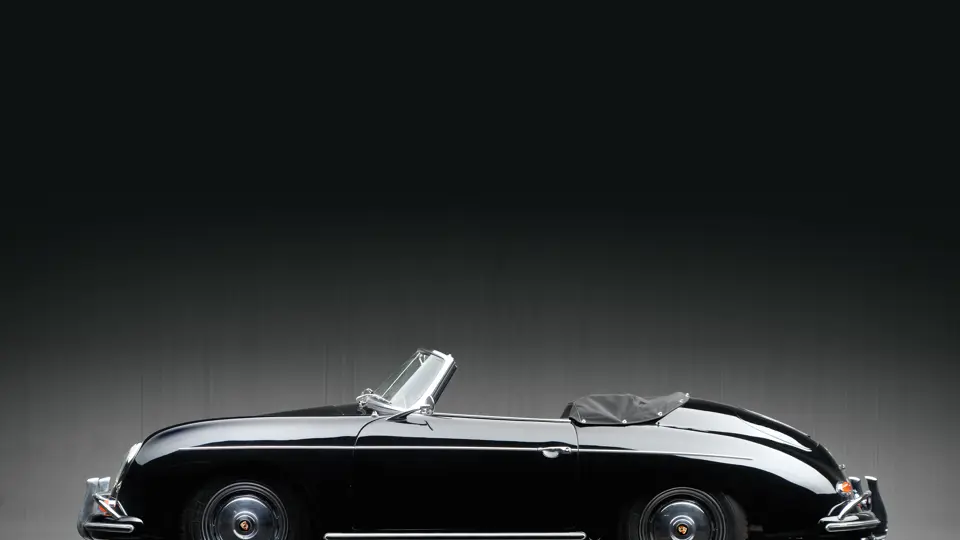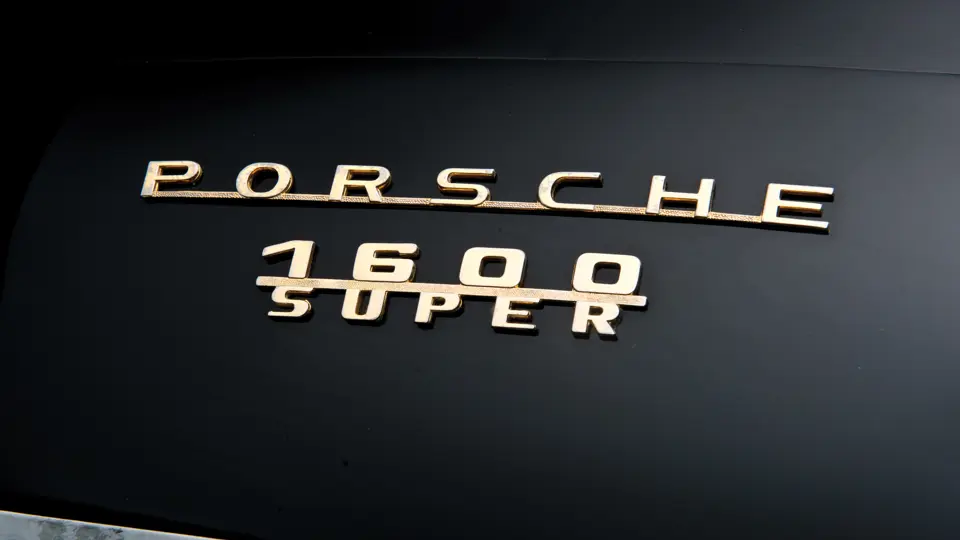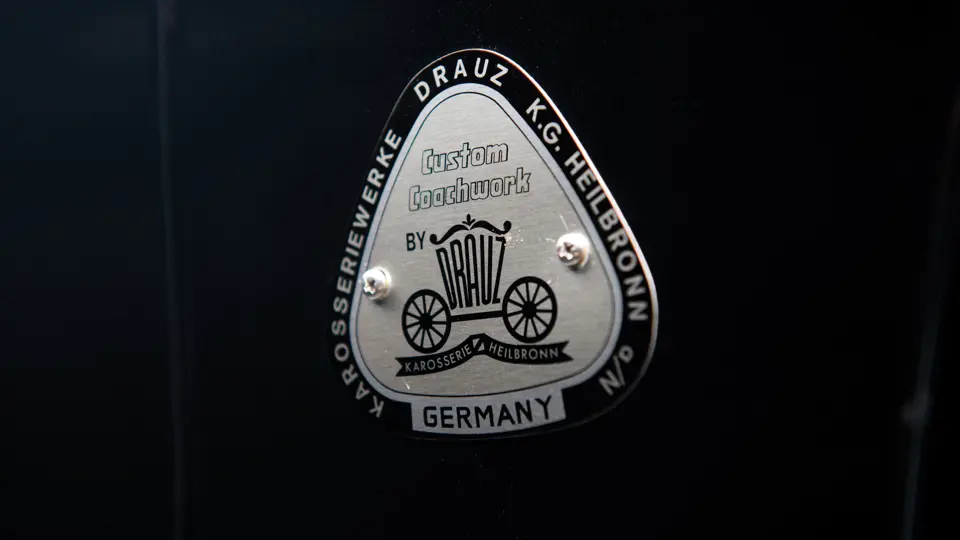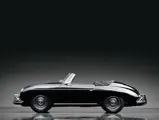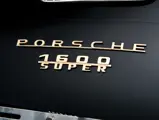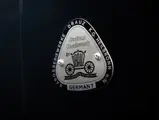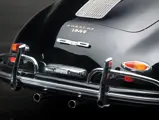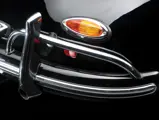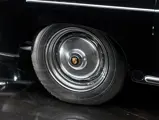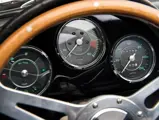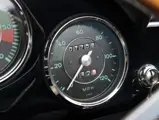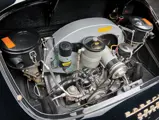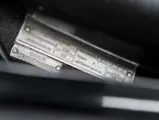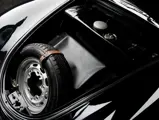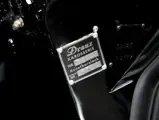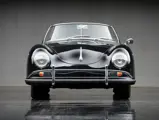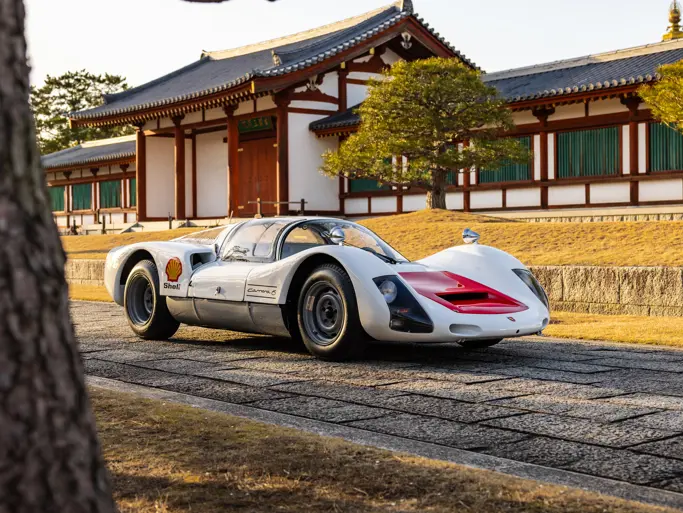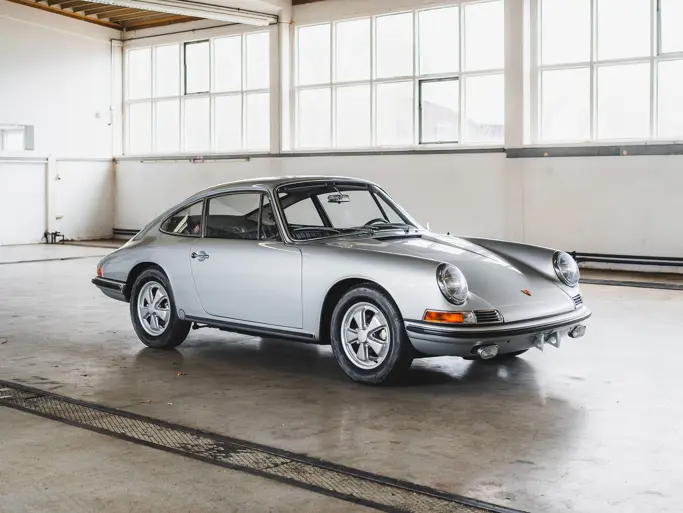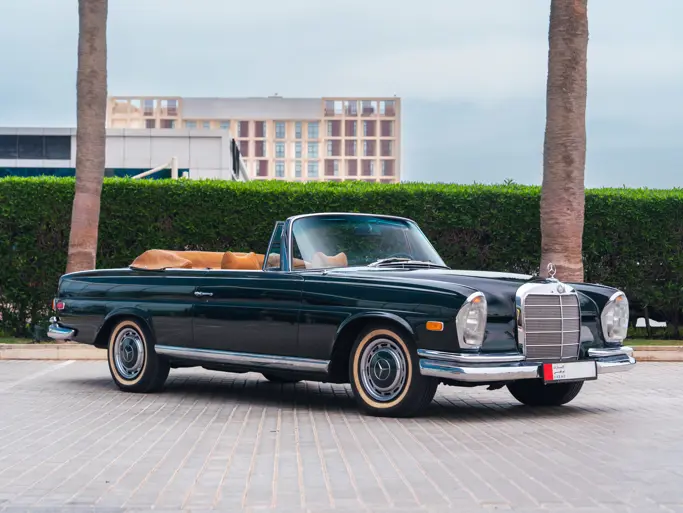75 bhp, 1,582 cc horizontally-opposed OHV four-cylinder engine, four-speed manual transmission, torsion bar independent front suspension, swing axle independent rear suspension, and four-wheel hydraulic drum brakes. Wheelbase: 82.7 in.
One of the most sought-after Porsches of the late-1950s is the 356A Convertible D, with body by Drauz Karrosseriewerke in the northern city of Heilbronn, Germany. Gustav Drauz and partner Rudolf Leopold began their coachbuilding business in 1900. Early clients were Daimler and NSU, both located nearby, but Adler, Ford, and Fiat soon signed on. The Ford relationship was so strong that a Cologne subsidiary was established in the 1950s. After World War II, most of their work comprised of van bodies for Ford and DKW, as well as some 120,000 sedan body shells for the Ford Taunus. Their pièce de résistance, however, is the Convertible D (for Drauz) body for the Porsche 356, built in 1958 and 1959.
A successor to the Speedster, the Convertible D debuted in the summer of 1958. With roll-up windows and a more upscale interior, it was less spartan than the Speedster, and a three-inch taller windshield gave it a less racy stance. Otherwise, they were much the same. This 1959 Convertible D, the 688th of the 1,330 car production run, was purchased at the factory by Mr. Louis K. Bok, of Cincinnati, Ohio. He drove it for nearly eight years before selling it to a young law student named H. Bradley Smith, for $1,000.
Brad Smith would keep it for the rest of his life. It was his only car for a time, and it was also the first of 12 Porsches that he would eventually own. He restored it twice, in 1988 and again in 2003. He chronicled the 2003 refurbishment, with great humor, in Rumble, the magazine of the Bluegrass Region of the Porsche Club of America. “At the time, the car was past ready for a junk yard. A convertible with no appreciable source of heat was not the best choice to have in Cincinnati.” He completely disassembled the car, he learned to weld, and he studied with the 356A experts. He had the engine rebuilt by Dick Weiss, of Cincinnati, acquired wiring from YNZ, of California, and sent the instruments to VDO for restoration. Body work and painting were done by a local craftsman, and the color changed from the original ivory to black. The seats were reupholstered in high-grade black leather with perforated maroon inserts. Summing up, he wrote, “I’m grateful for all the things I learned and all the good friends I made in the Porsche community.” In 2006, with 200,000 miles on the odometer, it won Judges Choice at the Keeneland Concours d’Elegance in Lexington, Kentucky.
The car still presents very well, with excellent paint and panel fit; the brightwork shows just the slightest age and blemishes. The engine compartment is clean and correctly presented. The interior is excellent in very respect. Surely, this is one of the finest examples of its kind.
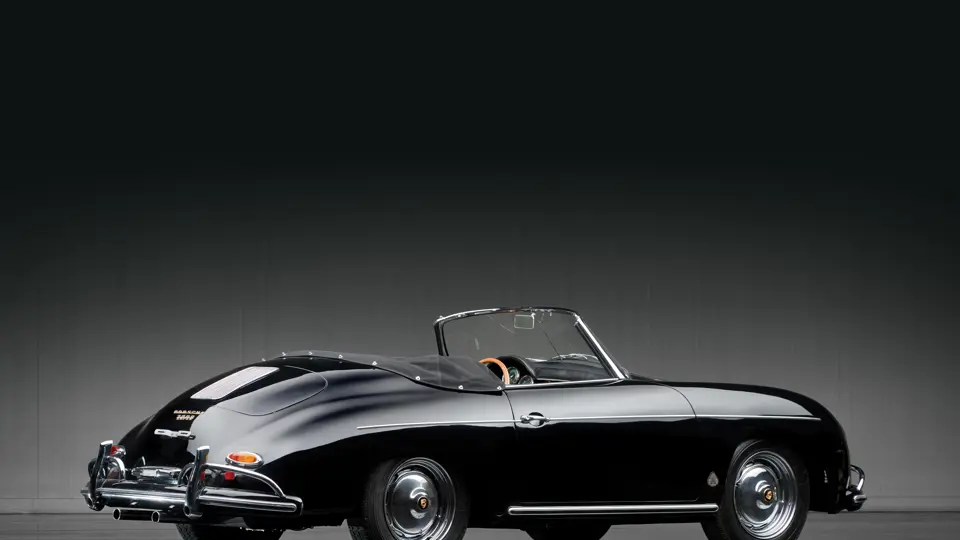



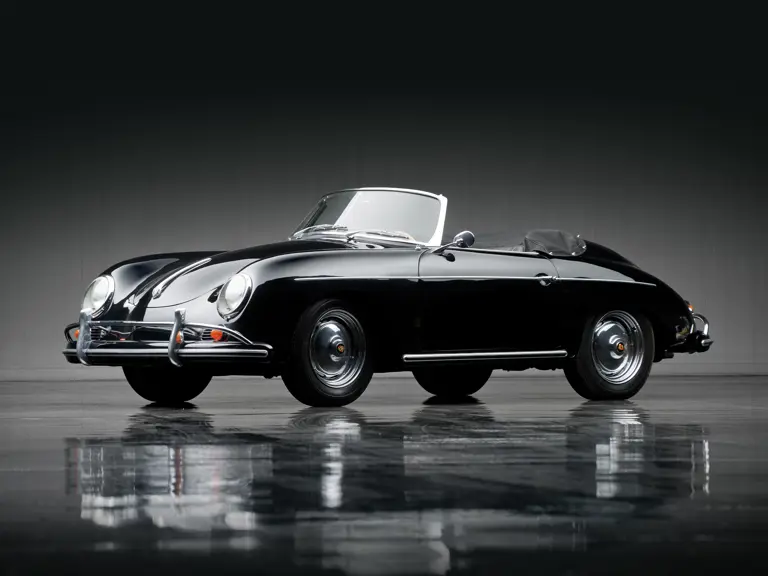
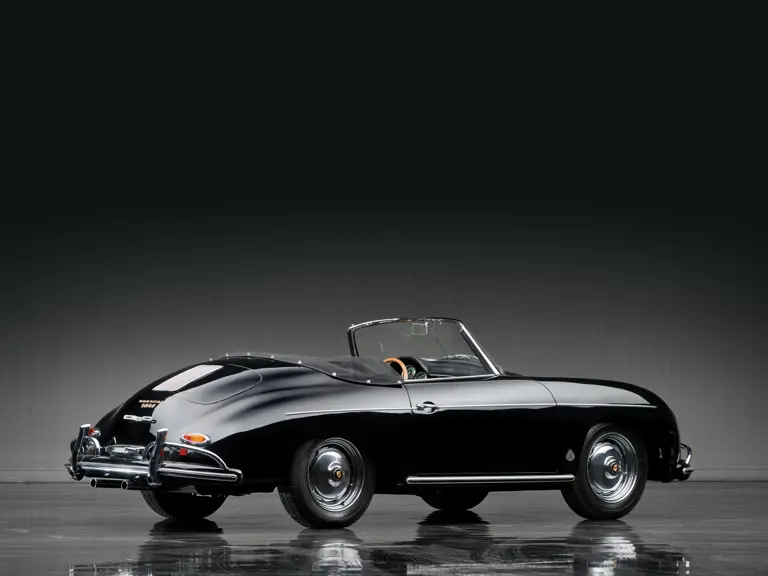
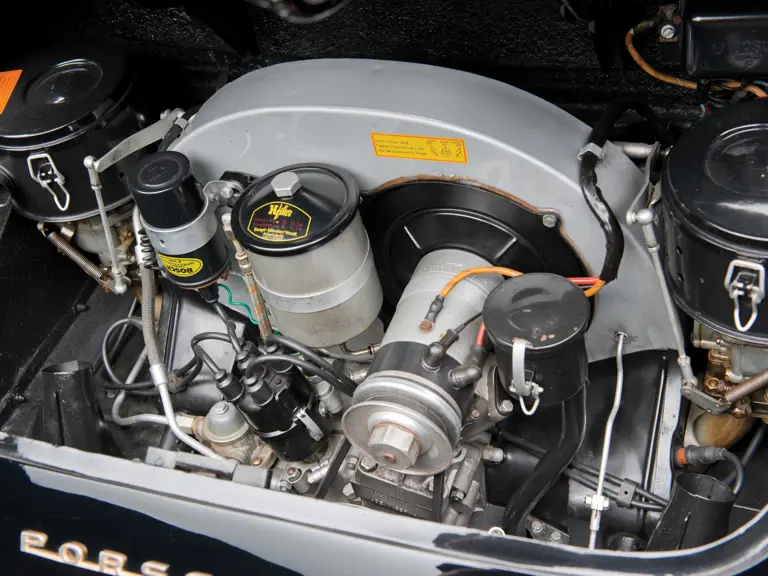
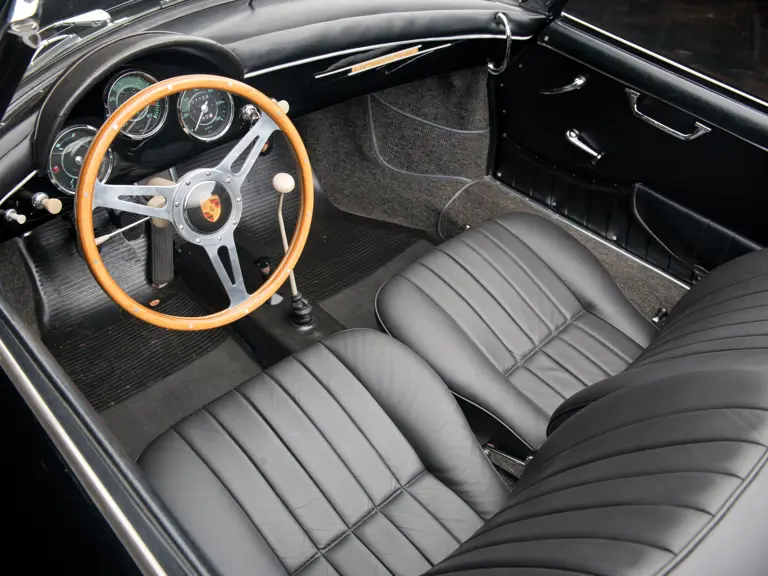
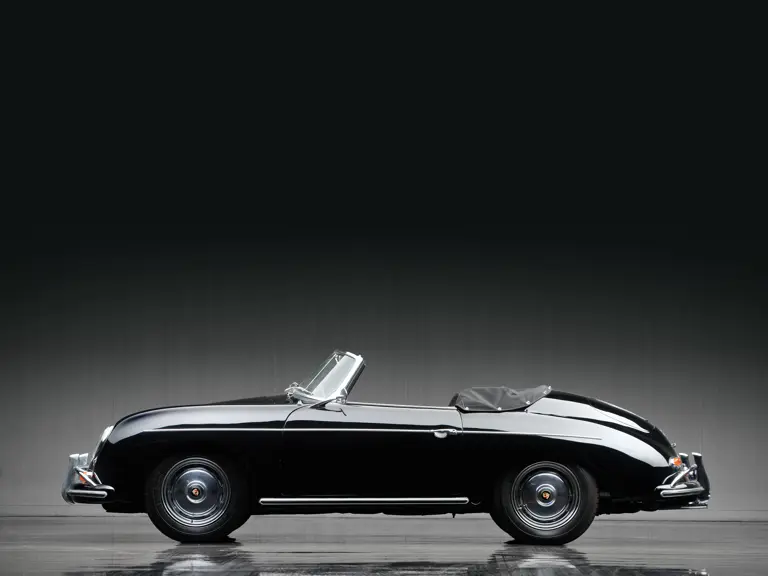
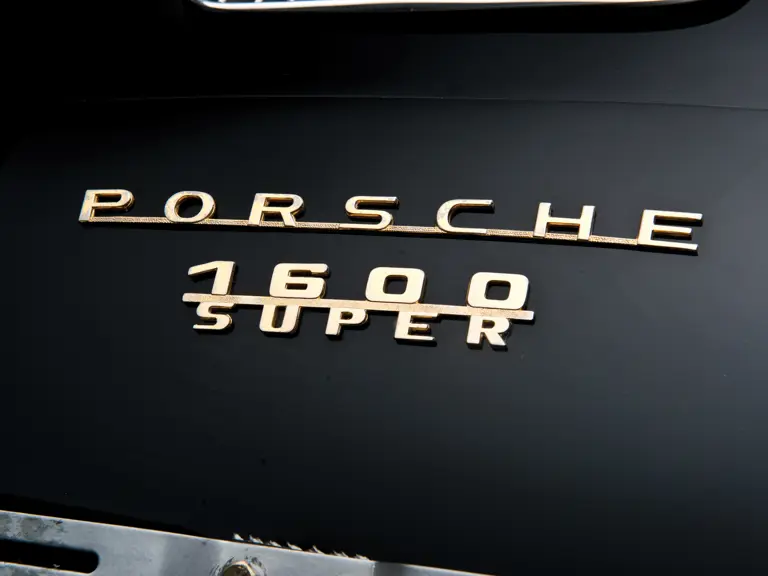
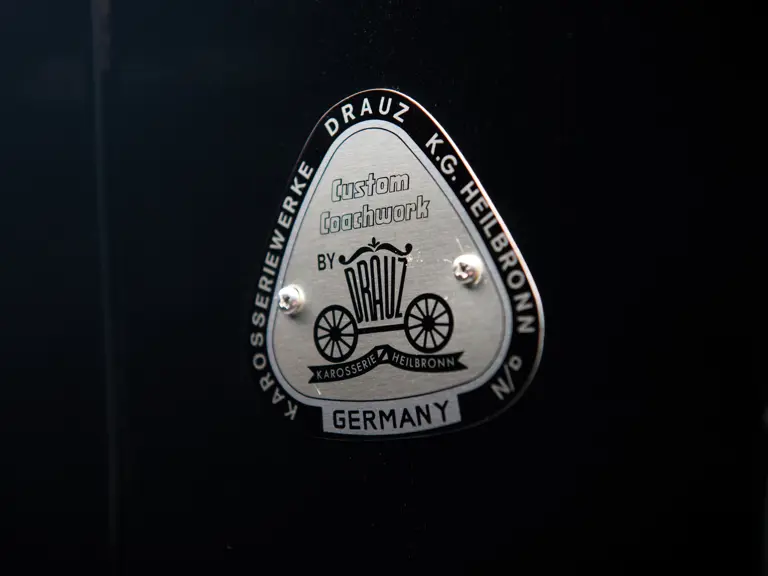
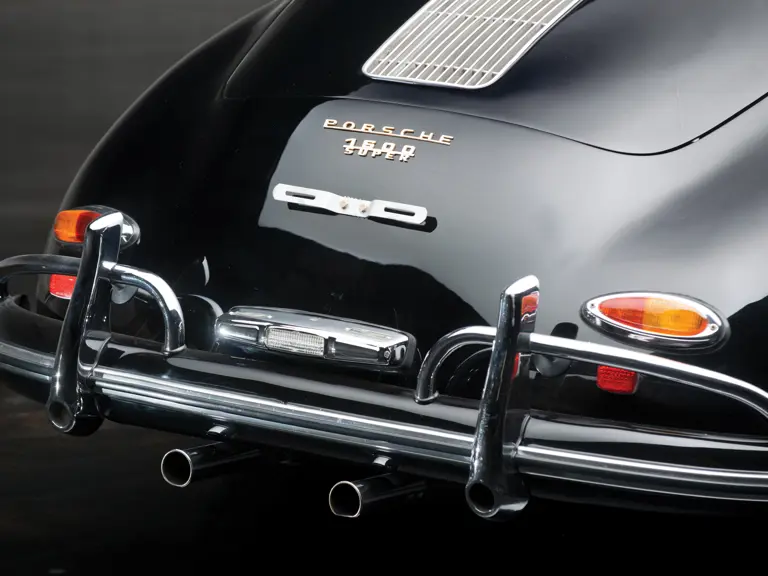
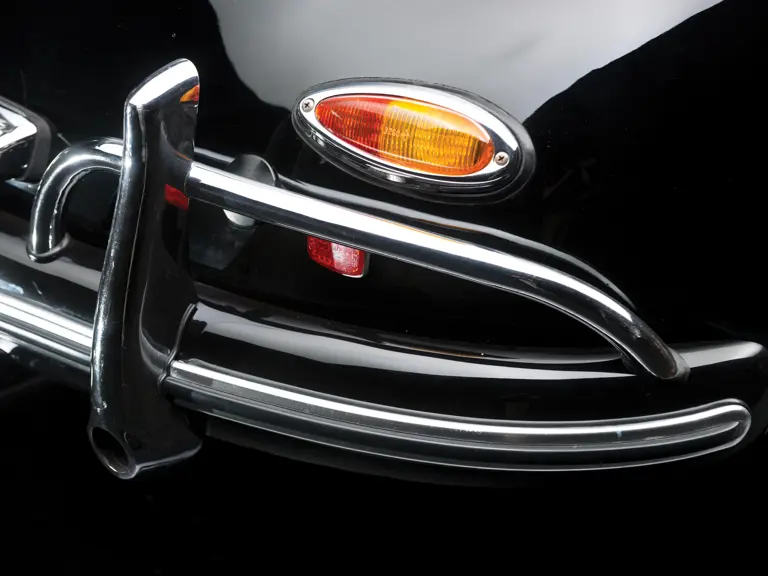
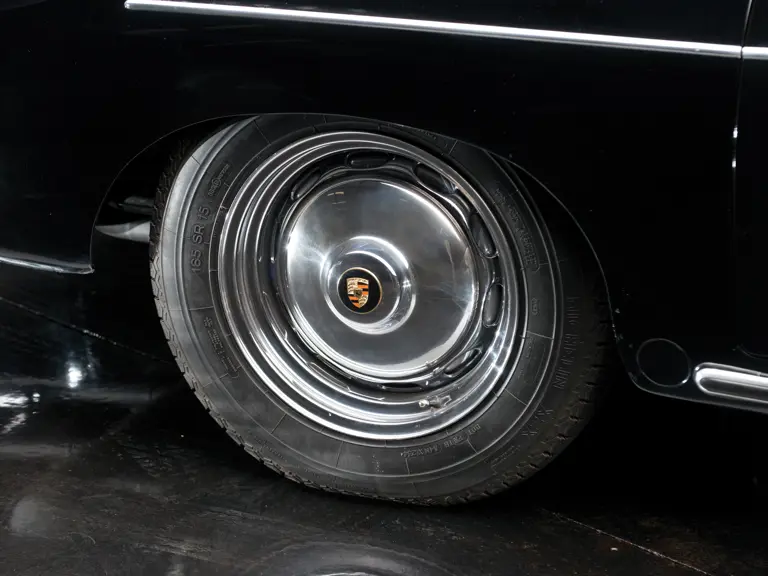
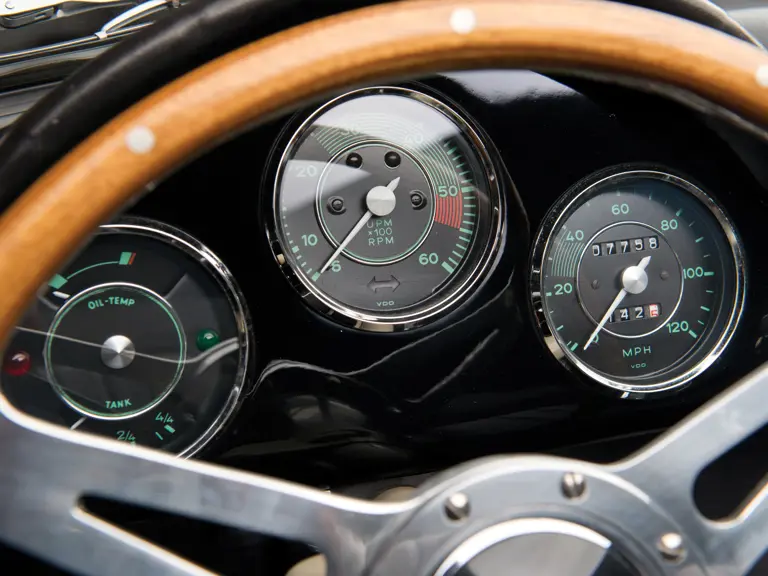
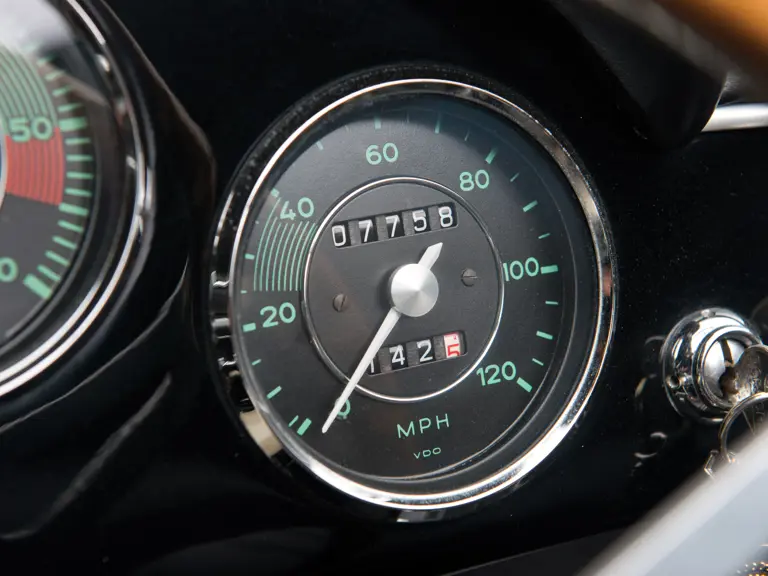
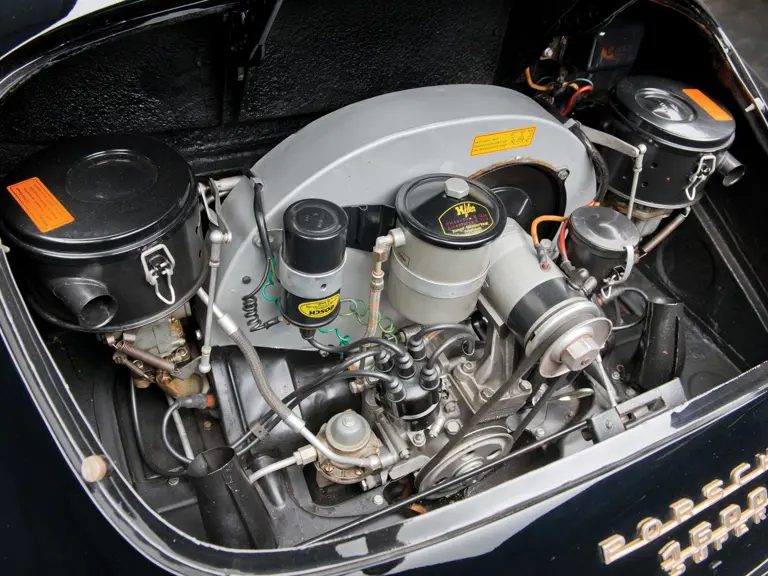
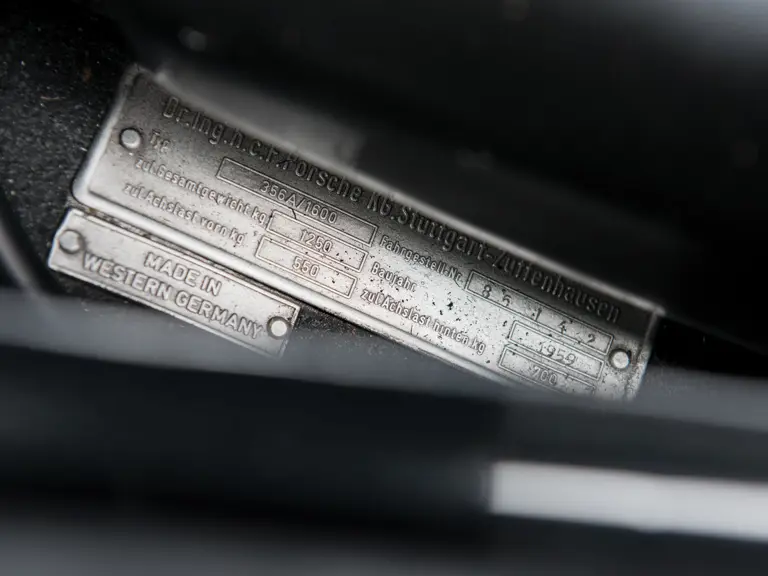
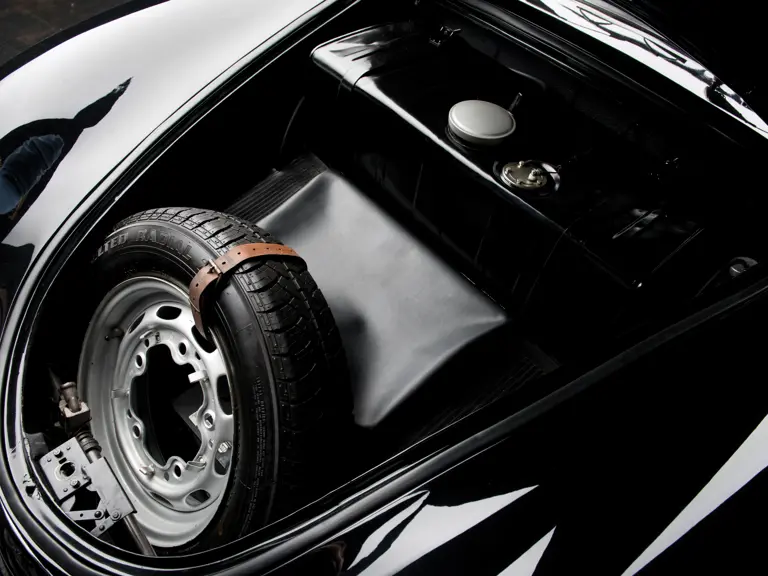
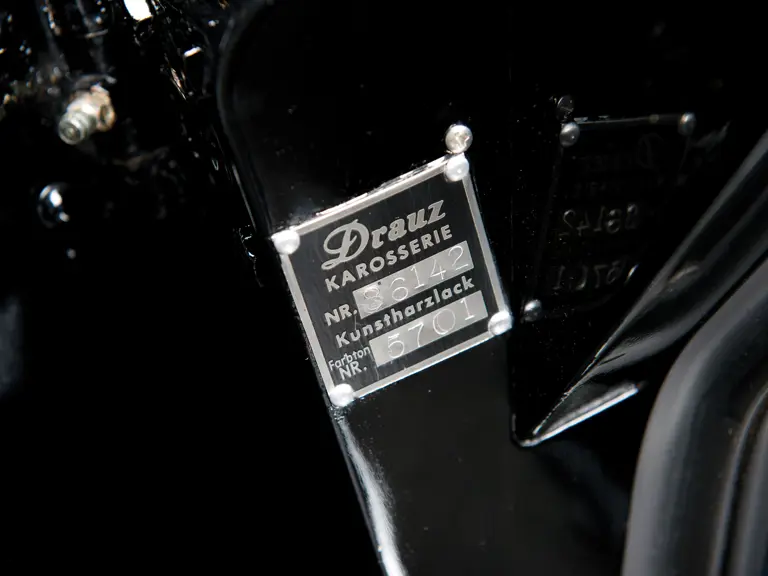
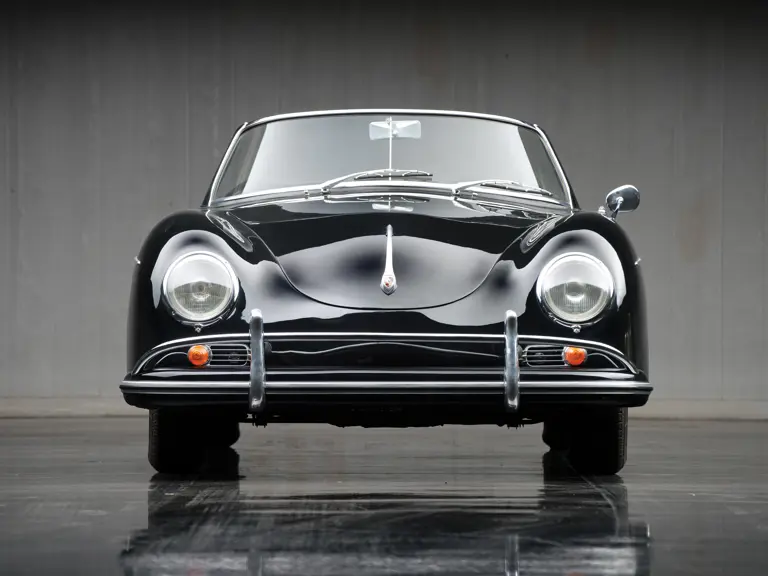
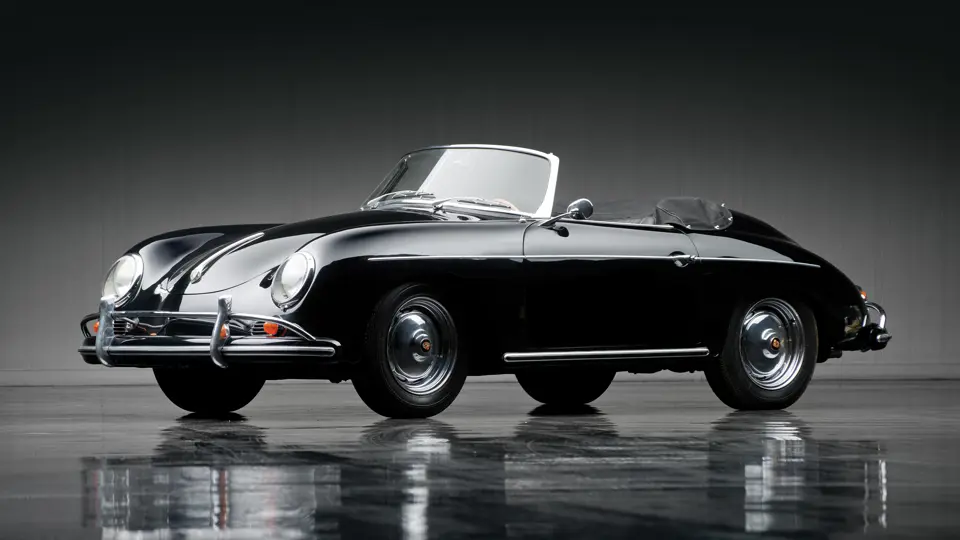
 | Fort Worth, Texas
| Fort Worth, Texas
